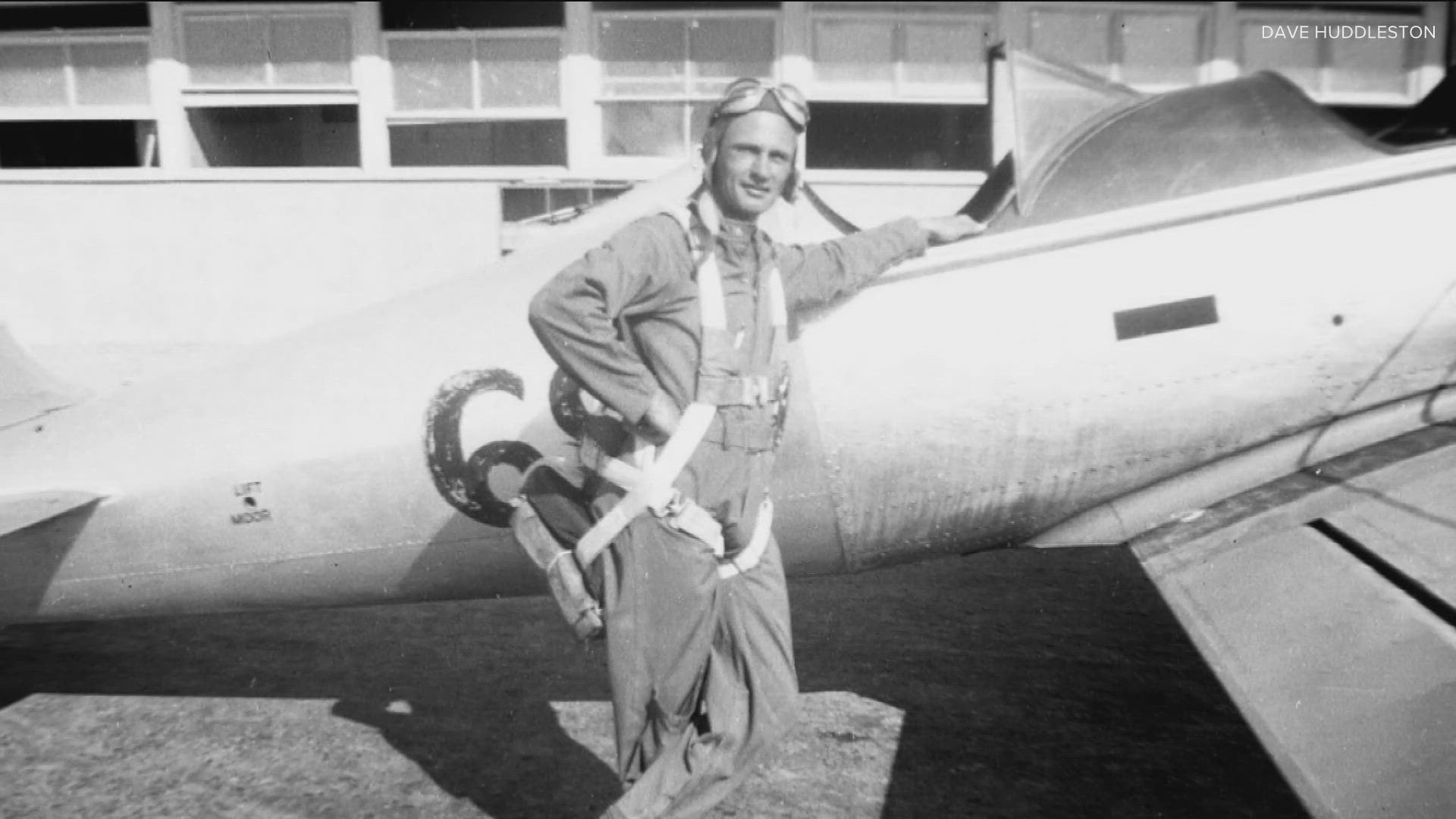LEWISTON, Idaho — This article originally appeared in the Lewiston Tribune.
After 81 years and 23 days, Allan Knepper is finally at rest.
Knepper, a World War II pilot, was shot down and killed July 10, 1943. He was interred with full military honors — the sounding of taps, gun salute and a color guard — that took place Friday at the Normal Hill Cemetery in Lewiston. His half-sister, Shirley Finn, was presented with Knepper’s flag at the service. About 100 people were in attendance; some were family members, some were friends and others were people who came to honor the sacrifice of a veteran from the Greatest Generation.
“It’s finally over with,” Finn said. “He’s been in the arms of the Lord for a long time.”
Knepper and Finn’s nieces Daphne Lytle and Stella Cravens were also happy their uncle was finally laid to rest at home.
“It feels complete,” Cravens said.
Lytle was happy for Finn to see her brother be found and returned home.
“It’s important that it happened now,” she said.
Finn is 81 years old, born 10 months after Knepper was shot down. With each year getting older, she wanted to make sure she was there when her brother was brought home. Although he died before she was born and those who knew him have passed on, she said he had a lot of friends.
“Because of him (Knepper), I made a lot of friends,” Finn said.

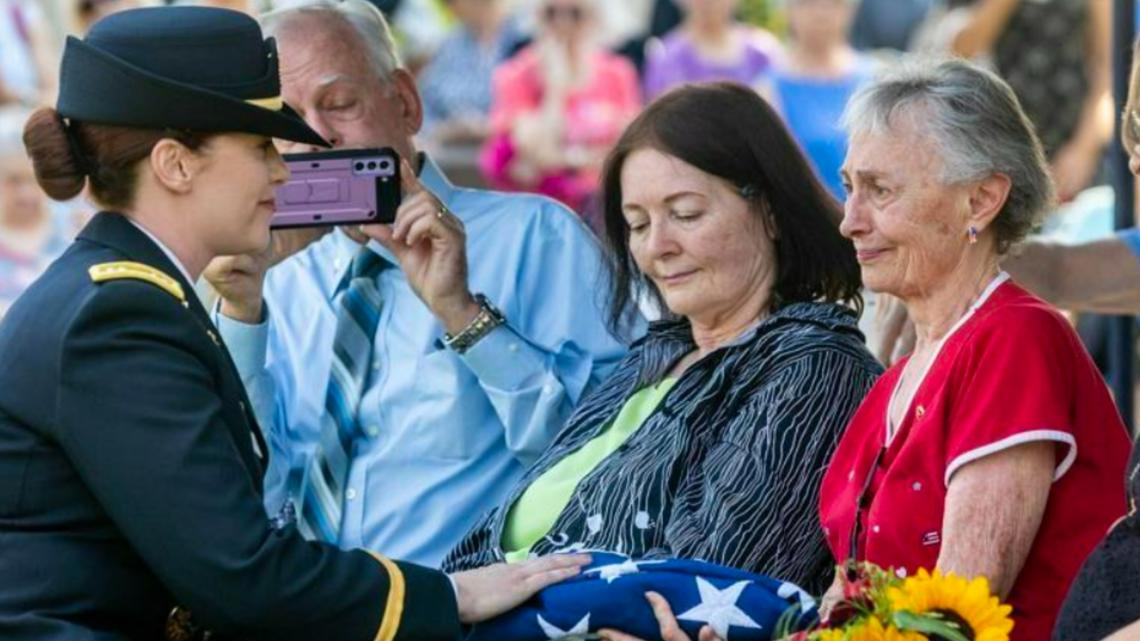
Knepper was 27 years old and a second lieutenant in the U.S. Army Air Force when his P-38 Lightning was shot down on the island of Sicily in Italy. He was declared missing in action and his body wasn’t recovered.
Until Robert Richardson, of Spokane, started to research Knepper for a book in 2011. Richardson’s father, Leonard, and Knepper were both pilots and friends in Lewiston, and joined the military together. Richardson’s research became a book, “The Jagged Edge of Duty,” but it also became a search to find Knepper’s remains.
With help from Finn, other World War II pilots and an Italian man named Salvatore Fagone, who spoke with witnesses to Knepper’s crash, Richardson made the case before the Defense POW/MIA Accounting Agency for a recovery effort. The search began in Caltagirone, Sicily, with five searches and excavation projects between 2017 and 2023. The DPAA announced in May that Knepper had been found Aug. 10, 2023.
The wait was over.
Capt. Shelby Smith-Baab is the casualty assistance officer for Knepper and was the one who presented Finn with the flag at the funeral. She first met with the family June 28 with a DPAA representative and gave them a history of Knepper’s service, the remains that were recovered and presented them with his awards, including a Purple Heart that was awarded posthumously. It was Smith-Baab’s first time being directly involved with the family.
“It’s honestly been such an honor to be a part of such a historical event,” she said. “(And to) bring one of my brothers in arms back home to rest.”
Smith-Baab said there were lots of people who contributed to Knepper returning home. One of those people was Congresswoman Cathy McMorris Rodgers, who was contacted by Richardson to get the DNA testing and get the recovered remains expedited.
“Allan’s home because of the love of people who knew him and didn’t know him.” Smith-Baab said. “It’s a special thing to be a part of for me.”

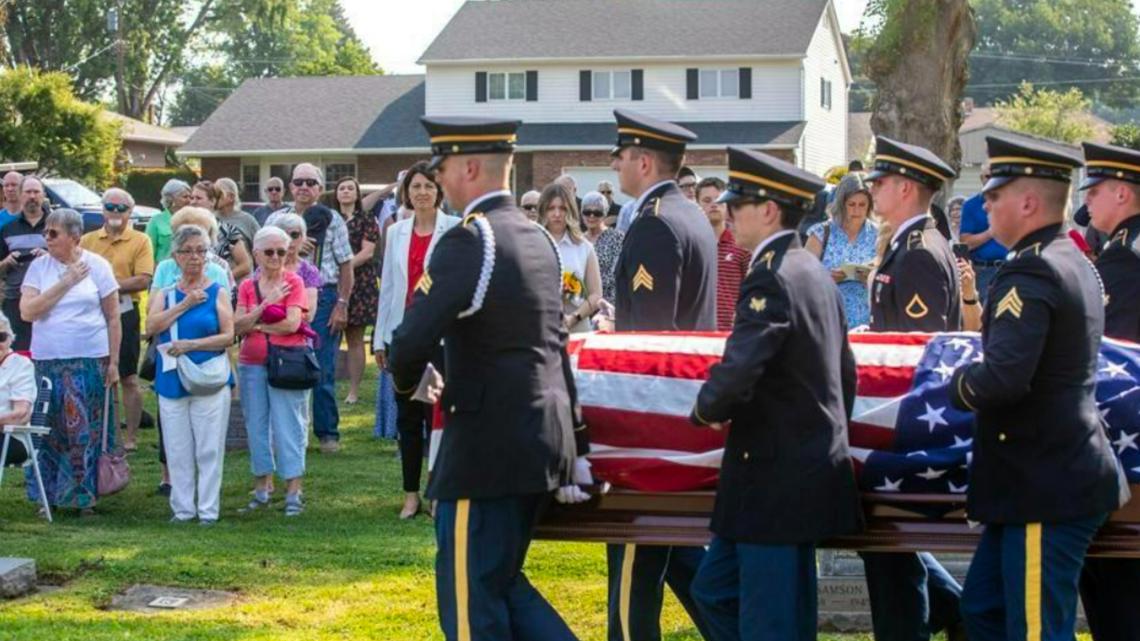
Knepper was born Feb. 11, 1916, in Othello, Washington, to Jess William and Stella Knepper. They moved to Lewiston in 1930 and operated Knepper’s Grocery on Thain Road in the Orchards. Stella died in 1936 and Jess married Alma Sloan and the couple later had a daughter, Shirley (Knepper) Finn, according to his obituary that was read at the funeral.
Knepper graduated from Lewiston High School in 1935 and attended Lewiston Normal College, later teaching in a one-room school in Summit, Idaho. He entered the Civilian Pilot Training Program and earned his pilot license in December 1941. He enlisted in the U.S. Army Air Corps and by Feb. 6, 1943, had completed training.
He sailed to North Africa on April 29, 1943, and on June 18 flew his first combat mission in northwestern Sicily. When British and American forces began the invasion of Sicily, Knepper was flying his second combat assignment of the day along southeastern Sicily and was shot down. He was declared missing.
“I won’t go through the information that was in the obituary but the story with Allan is so amazing you almost want to,” David Huddelston said when he began his eulogy.
Huddleston, a friend of Finn’s and the family, spoke on behalf of Richardson, who wasn’t able to make it to the service because he was sick in the hospital.
Huddleston said that because Knepper’s death was so long ago no one is alive who knew him. But Richardson, because of his research, knows him the best.
“He probably has a better grasp of Allan and how Allan thought — the belief — than anyone else in the world,” Huddleston said.
Even though he wasn’t able to attend, Richardson shared his notes with Huddleston, who gave one story of Knepper that his mother often shared, showing the type of person he was at a young age. The day after a church potluck Knepper’s mother was doing laundry and found sauerkraut in his pants pocket. When she confronted him he said that he didn’t like it, but didn’t want to offend anyone so he stuck it in his pocket.
“Even as a young child he took other people’s feelings into consideration,” Huddleston said.
Though Knepper didn’t seem to enjoy the Army, once writing that “there are worse things than being in the Army but I can’t think of any right now.” Traveling on a ship to his combat mission, he wrote of the beauty of the Mediterranean Sea, but didn’t have a desire to stick around, “I think one more boat ride will satisfy me.”
There were common themes in Knepper’s letters to home.
“He loved kids and he loved farming, but it’s hard to know which one he loved more,” Huddleston said.
When his brother had a child he wrote “I wish I had that much to live for.”

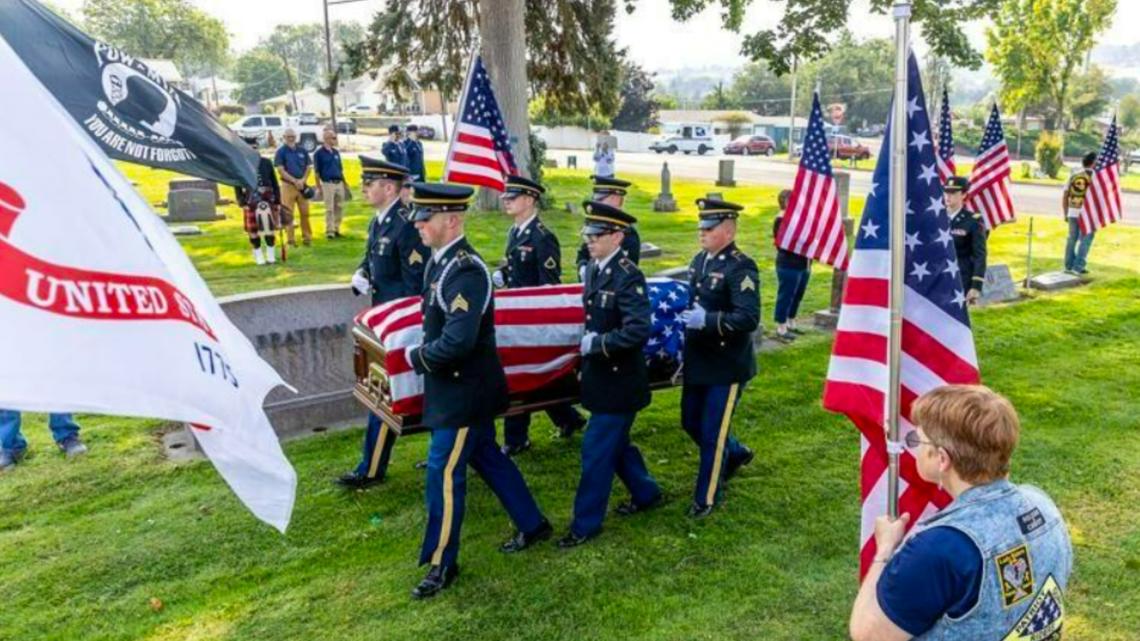
Huddleston said that in letters he often mentioned young women he knew and it was clear he wanted to get married and start a family. One of the items that was returned after he died was a photo of a dark-haired woman in his wallet, likely someone he intended to marry when he returned home. She remains unidentified.
When it came to farming, Knepper wrote when he came to Africa he thought about having a ranch in the area, thinking it would raise decent crops.
“He was looking at everything with the eyes of a farmer,” Huddleston said. “While Allan’s degree was in education he had farming in his DNA, getting back to the land was what he wanted most.”
Knepper wrote that he had no “hero complex” but wanted to get the job done and return to civilization. But he also knew the cost, writing that Army pilots don’t often die of old age.
“But I wouldn’t change this experience for a kingdom,” Knepper wrote.
Knepper had been with his fellow pilots for a long time and wasn’t looking forward to the day when some of them wouldn’t return. One of the last letters he wrote to his sister said he had only been there a couple of days and was already getting used to counting the planes when they came back to see if any were missing.
“None have so far and I hope it keeps up that way but I know of course that’s too much to ask,” Knepper wrote. He ended up being shot down 22 days after his first combat mission, only flying eight missions.
Pastor Jon Van Vogt of SonRise Church officiated the service, reading Knepper’s obituary, offering prayers and committing Knepper’s body to his “final resting place.” Van Vogt spoke of Knepper’s faith and love of God.

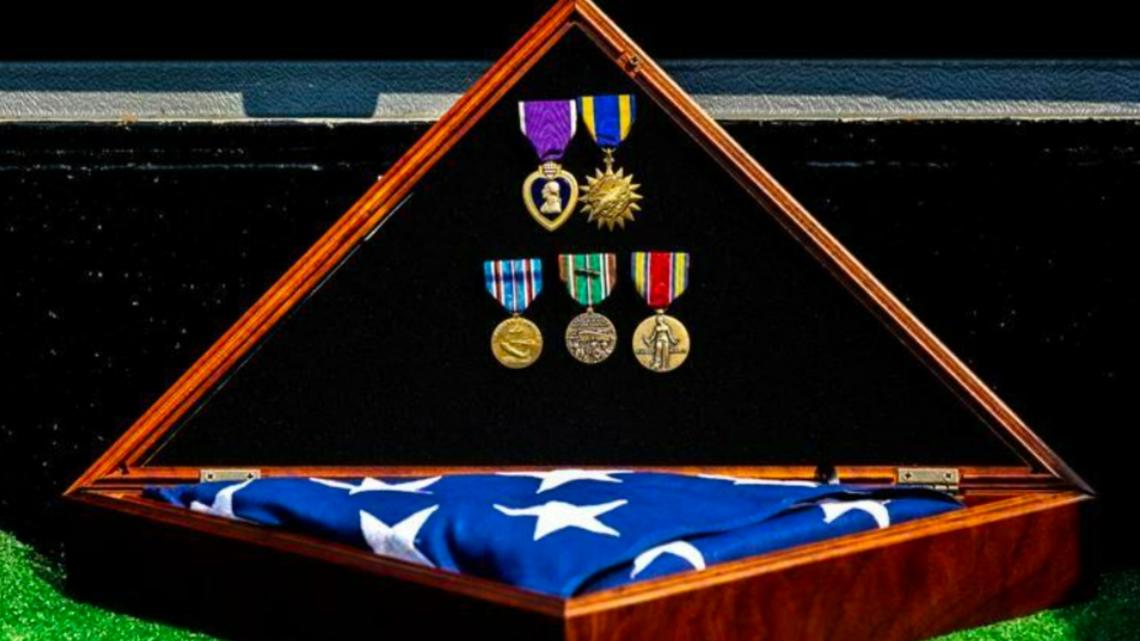
Huddleston noted that Knepper’s religious preference on his military record was “protestant,” which was unusual at the time because most people listed “no preference.” Another artifact that was found with his remains was a medal with Jesus Christ on one side and the Mother Mary on the other side. A medal of this type isn’t common with protestant faith.
“One can only wonder if it was given to him by someone he knew, maybe the still unidentified woman whose picture he had in his wallet,” Huddleston said.
McMorris Rodgers also made remarks thanking Knepper for his service and sacrifice. She said that one of her greatest honors in representing eastern Washington is honoring those who served.
“(Those) who put on the uniform and defended the freedoms we enjoy every day as Americans,” McMorris Rodgers said. “They’re the reason that we enjoy these freedoms and have protected this promise of America.”
McMorris Rodgers said that people can’t forget the sacrifice and bravery of Knepper and all he gave for the country.
During the ceremony there were some laughs at some of the stories and quotes shared from Knepper’s life, but as the flag was being folded and presented to Finn, there were tears.
“It took 81 years,” Huddleston said, “but Lt. Allan Knepper, thank you for your service, the ultimate sacrifice, and welcome home.”
Brewster may be contacted at kbrewster@lmtribune.com or at 208-848-2297.
This article originally appeared in the Lewiston Tribune, read more on lmtribune.com.

